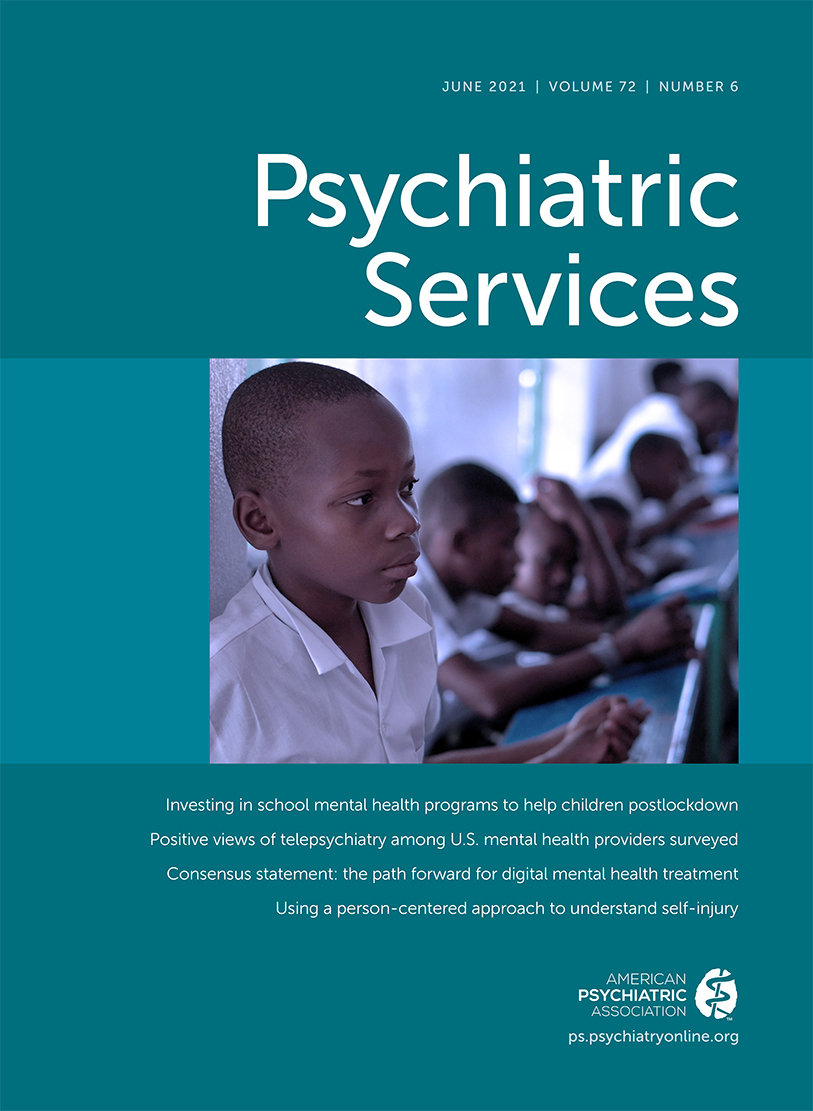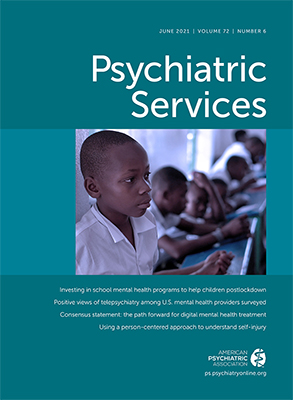Barriers to and Facilitators of Implementing Peer Support Services for Criminal Justice–Involved Individuals
Abstract
Objective:
Methods:
Results:
Conclusions:
HIGHLIGHTS
Peer Support Services and Implementation
FPS
RE-AIM Framework and the Current Study
Methods
Study Sample
Study Design and Setting
Data Collection
Data Analysis
Results
Adoption
As illustrated by the quote, service introduction requires buy-in from mental health system gatekeepers and recovery-oriented gatekeepers in local criminal justice system facilities. Funding is a barrier to FPS service introduction in ways that differ from funding-related barriers to other peer support services. Peer support services are Medicaid reimbursable in 41 states (40), including Pennsylvania. A main challenge with implementing FPS is that many incarcerated individuals in Pennsylvania are not eligible for Medicaid; individuals released from incarceration frequently encounter barriers to enrolling (or reenrolling) in Medicaid: “When we talked to the warden, he was very open about the idea of peer support within. . . . But then the barrier came of ‘who’s going to pay for it?’” (participant 045). Therefore, even when recovery-oriented gatekeepers exist, lack of access to traditional peer support–funding mechanisms presents a substantial barrier to the initial adoption of FPS.The goal for the last three-and-a-half years or so has been to get the forensic piece going. . . . The previous warden, we met with him, and he was very unreceptive to the idea. He said, “This is jail.” He said he wasn’t a social worker and blah, blah, blah. . . . The warden, the new warden, is a very therapy-minded person. . . . She kind of really supports us and so we’re getting many, many referrals. (participant 014)
| RE-AIM category and factorb | Example quotation |
|---|---|
| Adoption | |
| Buy-in from recovery-oriented gatekeepers in the criminal justice system (facilitator) | “It’s not growing because the prison doesn’t want us in there” (038). “The opportunity to get into local jails, you have to have a really good relationship with the county to begin with. . . . One of the things that part of the curriculum is teaching people [is] how to go to their county overheads to talk about getting into the jails, what you can offer them, what is going to make their job easier in the long run” (024). |
| Funding, specifically, lack of Medicaid coverage for incarcerated individuals (barrier) | “The only thing I can do in the prison program was if one of our [clients] goes in and doesn’t lose their Medicaid. They’re just there on a violation . . . for a few weeks, we can go in and see them. But once that Medicaid funding is severed, I could still show up and go there, but again, my boss is going to be like, ‘We can’t do that. We can’t bill for that’” (052). “We are a Medicaid-reimbursable service, so once you’re in jail, you lose your insurance, so you don’t qualify, so [support] has to be through grant funding” (047). |
| Implementation | |
| Philosophical mismatch between the criminal justice system and peer support services (barrier) | “We’re looking at a whole transformation of the [criminal justice] system in some respects. It took 10 years for us to get to the point where we are with our [mental health] system transformation here. That’s a whole other system. I think [something] has happened, but it’s trickling” (031). “I think [FPS] hasn’t moved fast enough, and it hasn’t gone far enough. . . . I don’t see them moving along like regular peer support has moved on. I mean, I’ve been in regular peer support for 8 years. The forensic population, I was trained [in FPS] and all, but I don’t see [FPS] moving as fast [as other peer services], and I think that’s because of the logistical law . . . or the courts slow [the expansion of FPS] down” (039). |
| Peer workers’ history of criminal justice system involvement (barrier) | “Do you understand the concept of forensic peer support? If you’re going to exclude people with a criminal background, then you’re not looking for [FPS]” (023). “There are some employers, especially the larger ones, who simply have rules, [that] will not hire anybody with a criminal justice background. That leaves out a lot of peers and recovery specialists” (013). |
| Maintenance | |
| Relationship building with on-the-ground workers in the criminal justice system (facilitator) | “I kind of have to know which jail, what I’m doing, to make sure that I don’t tick off any . . . staff member” (016). “Then you go in, but there’s people that do the day-to-day work, [who] see you as a stranger. When I first went into the prison, correctional officers, public defenders, social workers, prison social workers didn’t receive me with open arms. It was like a mentality . . . either you [are] with us, or you [are] with them” (033). |
| Instability of grant funding (barrier) | “Like I said, we tried and tried and tried. I got two different grants to go in, but . . . they kind of got eaten up just trying to get through the system. It was so hard” (014). “I moved on because it was an 18-month grant, and there was no funding after that. Then I moved on, went back home, and provided peer support one on one again in [county name]” (012). |
Implementation
As a result of these barriers, some organizations are hiring FPS specialists without a history of criminal justice system involvement, thus abandoning the fundamental peer principle of experiential knowledge (42). As a program director admitted, “We have not hired people because they couldn’t go in the jail. It defeats the purpose in a way” (participant 021).There is a full-time position that opened up or is opening up there in [county name] that I really want and they want me to have, but they won’t let me . . . back in jail because of my past history with them. . . . That’s been the barrier for a lot of people that should and would be better going in [to support individuals in the facilities in which they’ve previously been incarcerated]. (participant 038)
Maintenance and Sustainability
Discussion
Peer Support Implementation and FPS
FPS in Context
Conclusions
References
Information & Authors
Information
Published In
History
Keywords
Authors
Competing Interests
Funding Information
Metrics & Citations
Metrics
Citations
Export Citations
If you have the appropriate software installed, you can download article citation data to the citation manager of your choice. Simply select your manager software from the list below and click Download.
For more information or tips please see 'Downloading to a citation manager' in the Help menu.
View Options
View options
PDF/EPUB
View PDF/EPUBLogin options
Already a subscriber? Access your subscription through your login credentials or your institution for full access to this article.
Personal login Institutional Login Open Athens loginNot a subscriber?
PsychiatryOnline subscription options offer access to the DSM-5-TR® library, books, journals, CME, and patient resources. This all-in-one virtual library provides psychiatrists and mental health professionals with key resources for diagnosis, treatment, research, and professional development.
Need more help? PsychiatryOnline Customer Service may be reached by emailing [email protected] or by calling 800-368-5777 (in the U.S.) or 703-907-7322 (outside the U.S.).

